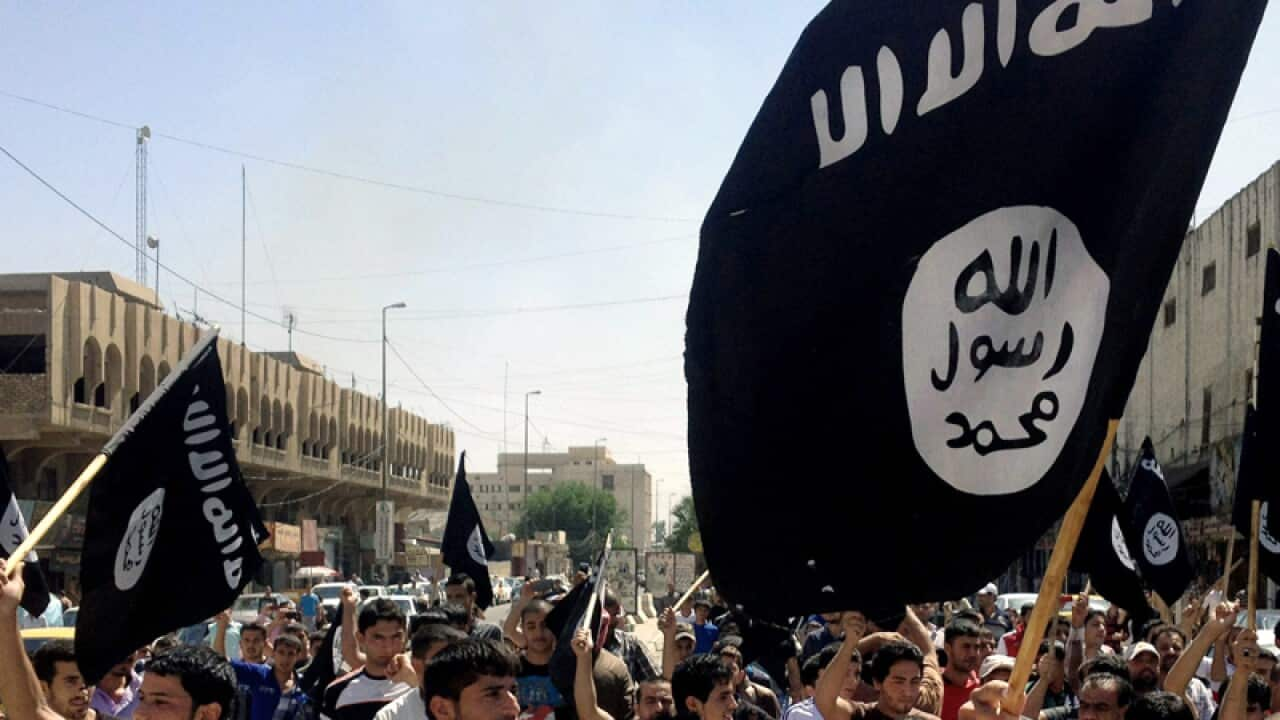KEY POINTS:
- Attorney-General Mark Dreyfus says controversial wording in Labor's IS flag ban may change.
- Muslim advocates have raised concerns over some terminology in the bill.
- But they welcome the 'tone and intention' Labor has taken to the bill.
Attorney-General Mark Dreyfus says the wording of Labor's proposed ban on the flag of the self-proclaimed Islamic State (IS) hasn't been finalised after Muslim advocates criticised "highly offensive" elements in its plan.
Earlier this month, Mr Dreyfus included the flag of the "abhorrent" IS in in public and online.
While Labor consulted with the Muslim community ahead of the announcement, the Australian Muslim Advocacy Network (AMAN) said it was not aware the bill would include references to "global jihadist ideology" or outlaw any symbol which "could be confused" with the flag.
Advocates have warned the former would entrench false perceptions linking Islam and extremism, while the latter could see regular Islamic iconography being reported to the police.

Mark Dreyfus says the wording of Labor's IS flag ban could change. Source: AAP / Lukas Coch
Speaking to SBS News, the attorney-general rejected suggestions Labor had not consulted properly, stressing the Muslim community was broadly supportive of the ban.
"They may have some concerns about the precise wording in the legislation. We'll listen to those concerns and work with him to make sure that we've got this exactly right," he said.
"They've expressed, I suppose you could call them technical concerns ... We're happy to work with anyone in the community who thinks that this legislation can be tweaked to make sure that we don't have unintended consequences.
"That's why we have parliamentary processes."
Announcing the ban, Mr Dreyfus was at pains to stress "the important distinction" between IS and the Islamic faith, which he described as a "deeply respected and valued as part of Australia’s multicultural society".
"The government condemns Islamophobia and stands with the Australian Muslim community in opposition to terrorism in all its forms," he said.
Warning over 'imprecise' language in the bill
While welcoming the "tone and intention" Labor had taken to the bill, AMAN feared "imprecise" language could cause harm to the Muslim community.
The bill grants religious exemptions for using prohibited symbols, given the swastika - which closely resembles the Nazi Hakenkreuz - is religiously significant to Buddhists, Hindus, and Jains.
But it outlaws any symbol which was likely to be "confused with [or] mistaken for" the IS flag, which includes the Shahada - an affirmation of faith central to Islam - and the seal of the Prophet Mohammed.

Mosques, such as Dubai's Grand Mosque, commonly display the Shahada, which translates to: "There is no god but Allah, Muhammad is the Messenger of Allah". Source: Getty / Andia/Universal Images Group
Since police would be tasked with determining whether a religious exemption should apply, advocates have warned of erroneous investigations into commonplace religious symbols.
AMAN also described the inclusion of the phrase "global jihadist ideology" as "highly offensive", fearing it would entrench erroneous links between Islam and extremism.
While it has been co-opted by some violent extremist groups, "jihad" is mainly interpreted as a believer's internal struggle to embody the values of Islam.










